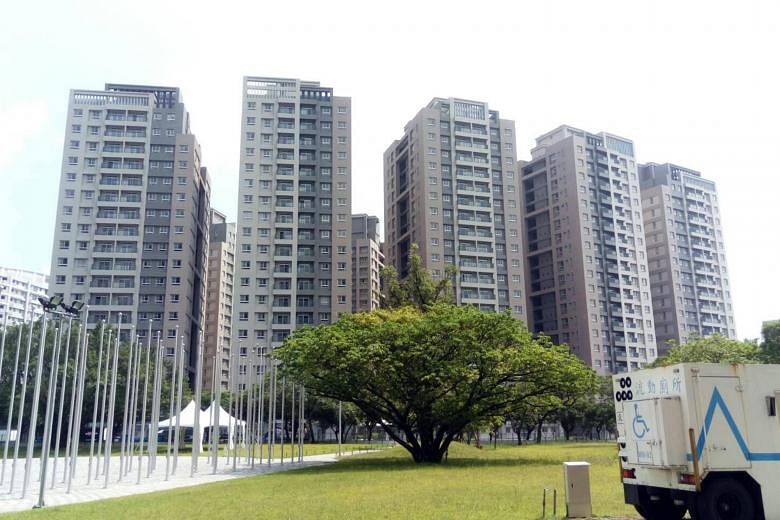TAIPEI - Taiwan announced on Monday (Jan 10) new incentives for hotel owners to convert all or part of their properties to social housing, in a scheme that would create more affordable homes as well as give hotels battered by the Covid-19 pandemic an additional source of revenue.
Hotel owners who agree to the scheme will get NT$40,000 (S$1,960) for each room that is converted, and hotels that cease operations altogether because of the pandemic will receive an additional NT$10,000 per room.
They will also be exempt from tax on property and their rental income. In addition, the government will make up the difference between subsidised rent for social housing and current market rental prices.
Recently approved by the government, the three-year project is a part of an overarching plan to make housing more affordable in Taiwan.
According to the Ministry of the Interior (MOI), some 16,000 hotel and motel units (rooms) will be converted into social housing for younger and disadvantaged renters in the first two years of the programme. The MOI will work with owners of another 4,000 public or privately owned rooms to do the same.
Hotels that sign up must have at least 15 rooms in the building converted to social housing, and those that opt to devote entire floors must have at least 30 rooms or half of its total number that are converted, said the MOI on Monday.
In addition to providing more affordable housing, the MOI is also hoping to use the programme to staunch the losses suffered by the hotel industry amid the Covid-19 pandemic.
In its push to create more affordable homes, the government aims to make available 200,000 social housing units, both newly constructed and subleased from owners, by 2024.
Central and local governments are working together to make this happen, but Taipei Mayor Ko Wen-je cautioned in November last year that the construction of social housing should be paced and not hurried.
Taipei has built some 18,000 social housing units in Mayor Ko's two terms, "but (we) also need to take into consideration the maintenance and management fees, which make the budget higher than initially expected", said the mayor, who was concerned that unlimited construction would mean more debt for the city's younger citizens.
"I think it's a good proposition to turn hotels into social housing, but actually Taiwan has many other spaces that are worth 'transforming' into social housing, not just hotels," said Mr Wu Cho-hao, an architect based in Taipei.
While utilising hotels may be ideal due to their proximity to downtown areas and public transportation, Mr Wu thinks Taiwan can scout out small or unused pieces of land in the city that can be turned into public housing.
He finds the growing number of social housing in Taiwan a positive trend, but pointed out the shortcomings in the ambiguous and confusing systems and rules for those who wish to apply.
"Taiwan's social housing hasn't been very accessible to those who really need it," he said.
Applying for social housing has proven challenging for some because of the rigid and sometimes unreasonable rules.
Tuition centre assistant Lai Ya-li, 31, lives with her mother and two siblings, but wishes to have her own place. However, her salary of NT$25,000 will not go far when renting a decent apartment in Taipei.
"The requirement (to be approved for social housing) calls for applicants whose immediate family don't own property in Taipei, but my mother has an apartment and that disqualifies me, even though the apartment is tiny and hardly enough space for us," Ms Lai said. She said her hopes at the government's announcement that it was building more social housing were dashed when she learnt about the criteria.
Social housing units around 40 sq m in Taipei call for NT$8,100 per month, while regular rental units the same size will cost Ms Lai double, if not more, taking up more than half of her monthly salary.
Another resident who would like to move into social housing is Mr Luo Peng-sui, 52, a construction worker who supports his wife and brother, both of whom are struggling financially and are relying on part-time jobs to get by.
But another rule could disqualify the daily-rated worker from being approved for social housing.
"An applicant's spouse or immediate family members and their spouses cannot be living in social housing if they themselves want to be approved - this is a clear disadvantage for those whose entire family is poverty-stricken and are applying for affordable housing at the same time," he said.
His brother's application for social housing may be approved this year, and once it is, Mr Luo and his wife may not be able to get the housing they need for themselves.


